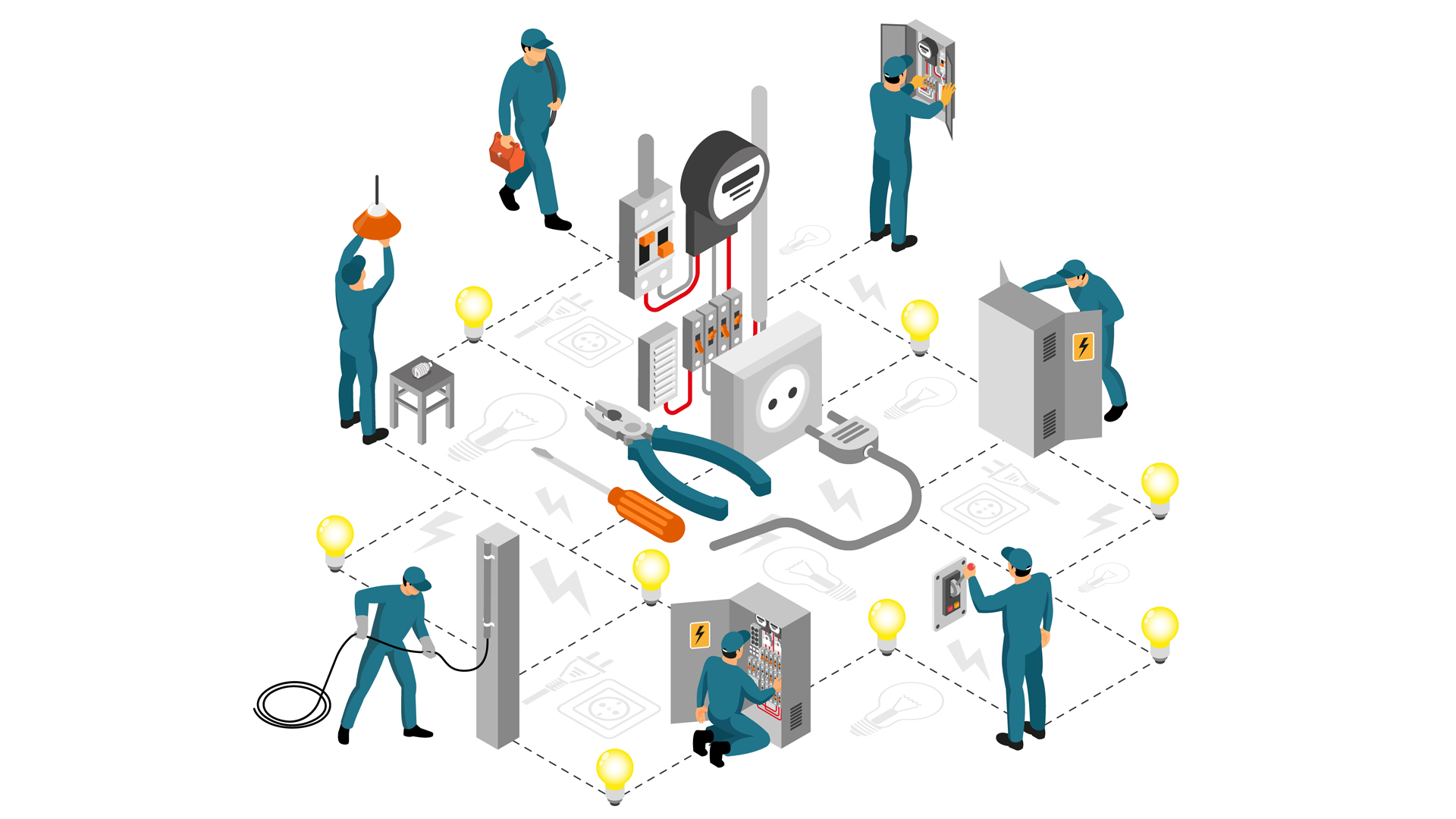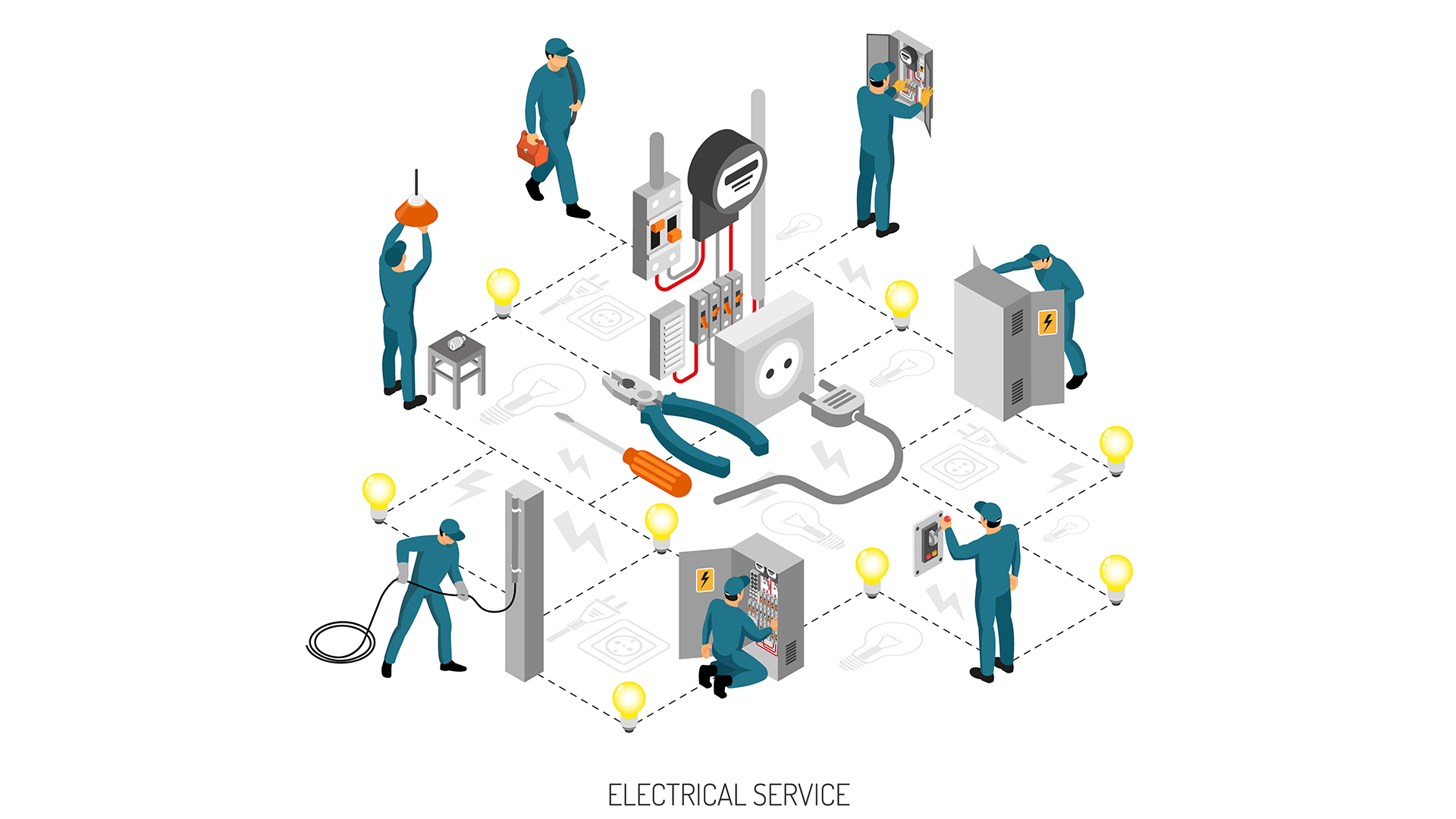
UPS Efficiency: Unlock Your Power
Course overview
The many distinctive forms of dynamic and static UPS will be covered in this course. Power outages are harmful to electrical equipment, power networks, and power systems. Therefore, UPSs are required to guarantee the stability, dependability, and security of the electrical power delivered. Additionally, UPS enhances power quality for devices that use semiconductors.
What are UPS and their many forms?
Some UPS varieties, such the dynamic uninterruptible power supply and the infamous diesel rotary uninterruptible power supply (DRUPS) systems, are already creating waves in the market due to their security and reliability. Everywhere customers require alternating current that is dependable and clean, such as when powering critical appliances or data centers. The two better and famed UPSs are more dependable and environmentally friendly since they don’t need batteries.
UPSs are a need for this century and essential for stabilising the power supply. The fact that UPSs include parts like batteries, inverters, rectifiers, and, more recently, new technologies that utilise power electronics components, is their major benefit.
Introduction
How does a backup power supply function?
It is anticipated that UPS would give the system the highest level of dependability and better quality while keeping costs low. A big design and maintenance difficulty and a trade-off between improvements and the price of upgrading UPSs arise more frequently when trying to meet such criteria. From one end, a tradeoff is made between the investment and the power quality and dependability. For these reasons, power loads are categorized based on the consequences of a disruption in their power supply.
The categorization system used to categorise loads includes critical, non-essential, and essential. The loss of electricity has only a minimal impact on non-essential loads. Essential loads are significantly impacted, particularly if the interruption lasts longer than a predetermined threshold value. Critical loads should never be interrupted since doing so has serious risks and expensive consequences.
These topics will be covered in this TraineeBee course:
- The cutting-edge technology employed by UPS
- The significance of having a reliable UPS
- Monitoring battery health and electrical power quality
- Battery types, maintenance requirements, and kinds
- UPS construction and operationxt
We are The Training Bee, a global training and education firm providing services in many countries. We are specialized in capacity building and talent development solutions for individuals and organizations, with our highly customized programs and training sessions.
Learning Objectives
Upon completing UPS Efficiency: Unlock Your Power, participants will be able to:
- Understanding the significance of UPS battery monitoring
- The significance of power quality in UPS
- Examine the qualities of UPS batteries
- Have a solid understanding of how various static UPS work.
- Thoroughly comprehend UPS topologies
- Fully comprehend the significance of a constant power supply for vital and important loads.Text
Our Unique Training Methodology
This interactive course comprises the following training methods:
- Social learning – Information and expertise exchanged amongst peers via computer-based technologies and interactive conversations including Blogging, instant messaging, and forums for debate in groups.
- Mind mapping and brainstorming – A session will be carried out between participants to uncover unique ideas, thoughts, and opinions having a quality discussion.
- Interactive sessions – The course will use informative lectures to introduce key concepts and theories related to the topic.
- Presentations – Participants will be presented with multimedia tools such as videos and graphics to enhance learning. These will be delivered engagingly and interactively.
- Group discussions – The course will incorporate group discussions and debates to encourage active participation and collaboration.
- Case studies – Participants will be presented with realistic scenarios and case studies that demonstrate effective strategies related to the topic. These activities will encourage participants to think critically and apply their knowledge to real-life situations.
Training Medium
This UPS Efficiency: Unlock Your Power training is designed in a way that it can be delivered face-to-face and virtually.
Course Duration
This training is versatile in its delivery. The training can be delivered as a full-fledged 40-hour training program or a 15- hours crash course covering 5 hours of content each day over 3 days
Pre-course Assessment
Before you enroll in this course all we wanted to know is your exact mindset and your way of thinking.
For that, we have designed this questionnaire attached below.
- Describe a UPS system.
- What kinds of UPS systems are there?
- How do UPS devices operate?
- What advantages come with employing a UPS system?
- What are the UPS systems’ limitations?
Course Modules
This UPS Efficiency: Unlock Your Power covers the following topics for understanding the essentials of the Agile Workplace:
Module 1 – UPS innovations
- Problems with power quality and preventing main failure
- Single-source and dual-source UPS supply systems
- Benefits and features of automated transfer switches
- Migration of batteries and UPS systems
- UPS security measures
Module 2 – Benefits of dynamic UPS and its architecture
- Analysis of the Kinolt system (formerly Euro Diesel)
- Kinetic energy storage and conservation in UPS systems
- Flywheels and batteries are the components of dynamic UPS systems.
- Solutions for dynamic systems and dependability
- Dynamic operation of a UPS system
Module 3 – Technology and architecture for static UPSs
- Advantages of offline uninterruptible power supplies with delta conversion
- The UPS power factor
- UPS scores
- UPS redundancy
Module 4 – Settings for UPS
- Assessing the dependability and maintainability of power supplies
- Defining various load classes and assessing the consequences of inadequately reliable and high-quality power supplies
- UPS maintenance specifications and troubleshooting techniques
- Uninterruptible power supply system setup and operation
- Configuring uninterruptible power supply systems in a practical manner
Module 5 – Monitoring batteries using automated methods, different battery types, and charges
- The significance and benefits of battery monitoring
- UPS system battery condition monitoring
- Uninterruptible power supply system charger types
- Batteries of the nickel-cadmium type and their upkeep features
- Characteristics of lead-acid AGM uninterruptible power supplies
Module 6 – Rotating and dynamic UPS systems
- Synchronized machine and motor operations
- DRUPS and their arrangements
- HiTec DRUPS’s principles and characteristics
- Rotary uninterruptible power supply benefits
Module 7 – Usage of UPS
- Characteristics of induction coupling
- Systems for uninterruptible power supplies by HiTec Diesel
- HiTec diesel configuration
- Flangeless clutch
- A flywheel
Module 8 – UPS for businesses
- Industries that can employ several types of UPS
- Settings for industrial UPS
- Industrial UPS upkeep
- Testing, recommissioning, and operational processes for industrial UPS
- Globally recognized requirements for UPS maintenance housekeeping
Post-course Assessment
Participants need to complete an assessment post-course completion so our mentors will get to know their understanding of the course. A mentor will also have interrogative conversations with participants and provide valuable feedback.
- What are the many UPS system varieties and how do they differ?
- What advantages come with employing a UPS system?
- What are the UPS systems’ limitations?
- How can I pick the best UPS system for my requirements?
- How should a UPS system be installed and maintained?
- What are some frequent UPS system issues?
Lessons Learned
- In the case of a power loss, important loads can get backup power from a UPS system.
- UPS systems come in two primary categories: offline and online.
- Only when the utility power fails do offline UPS systems give electricity.
- Even when there is utility power available, online UPS systems constantly supply power.
- Numerous advantages of UPS systems include:
- defending vital loads against power failures
- supplying critical gadgets with a surge protector
- enhancing power quality
- Increasing the longevity of your equipment
- There are several drawbacks to UPS systems, including:
- They could be pricey.
- They could be large.
- They demand routine upkeep.
“The assurance that your devices are always protected may be found in a UPS system.”







